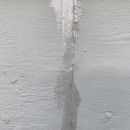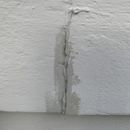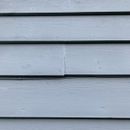How to remove silicone caulk off of wood siding.
Does anybody have any tricks or an easy solution to remove non paintable silicone caulk from wood siding?
Silicone caulk was used (most likely by previous owner) in between where 2 pieces of siding meet in a small section of the back of the house. The back of the house is very exposed to rain and the idea was to prevent water from getting into the siding cracks.
I have no plans of painting the siding now but I will in the future. In the meantime, I would like to remove the silicone that stick out like a sore thumb and apply the right caulk in between the cracks.
GBA Detail Library
A collection of one thousand construction details organized by climate and house part












Replies
I assume you've tested a dab of paint and are certain it's 100% silicone?
I would only use mechanical means to remove it, if you must--sandpaper, scraper, utility knife etc. Otherwise you can try priming it with shellac or another paintable sealant on top.
https://www.wikihow.com/Paint-over-Silicone-Caulk
Thanks for the link!
When I've had to do this, I use a combination of a metal putty knife and a utility knife to carefully scrape and peel the silicone off of the surface. Sometimes you can get your fingernail under it and peel off large areas as a sheet too depending on how well it's adhered to the surface. Sand what's left.
If you have remaining silicone that is causing you problems, acetone can clean it, but acetone will also remove pretty much any finish from the siding too, and will damage many plastic materials if you spill any.
I wouldn't trust any primer to hold up outdoors over silicone. Besides adhesion, you also have heating and cooling cycles to deal with outdoors which I expect would cause issues such as bubbling or separation of the paint down the road.
Bill
Bill,
Thank you!
I have removed cured silicone with a pull handle scraper with a sharp blade. That will cut into the cured silicone and even into wood to have the best chance of getting it completely off. I don't know to what extent silicone wets into the wood, or if it does that at all. If it does penetrate the wood, you would have to scrape into the wood to get it all off.
Bill, I did not know that acetone dissolves cured silicone. I used a lot of silicone before I found out that isopropyl alcohol is a solvent for uncured silicone. I use 100% silicone a lot, but I think it is one of the most demanding products to use.
Most silicone sealants cure by evaporation of acetic acid, which is where the “silicone smell” comes from. Acetone will clean it, but it’s still a lot of work. The downside is that the acetone will typically take off paint before the silicone too, so no matter what you do you end up with an “excessively cleaned” spot to refinish.
I’ve never tried isopropyl alcohol and didn’t know that worked too. I’ll have to try that sometime, although it’s a bit hard to come by at the moment. I can tell you that acetone will very quickly remove the printed marks on aluminum straight edges. I have a nice (slightly less nice now) six foot aluminum straight edge that has a smear about 18” long in the middle where the inch markings used to be. I used some acetone to clean off some canned foam that I dribbled on the straight edge. The canned foam cake off, and so did the printed markings — with a single quick wipe. I didn’t think the markings would come off so easily!
Bill
Ron,
Thank you!